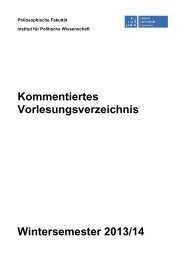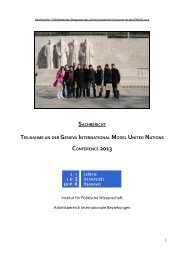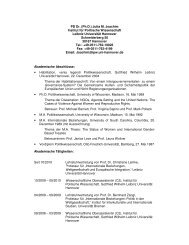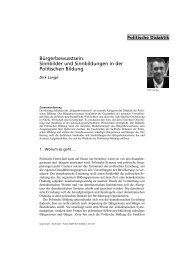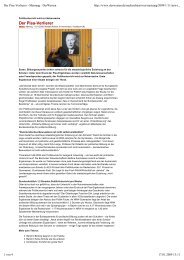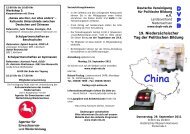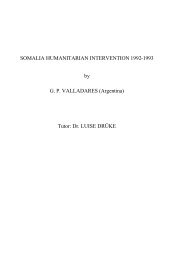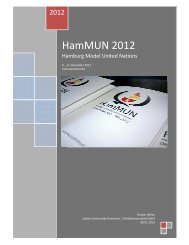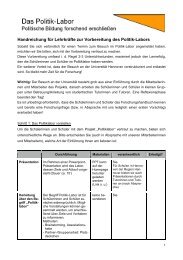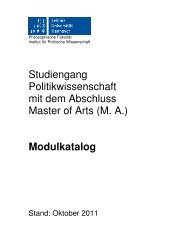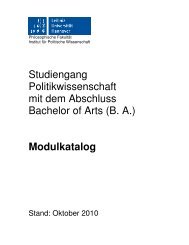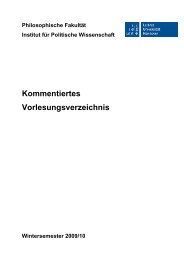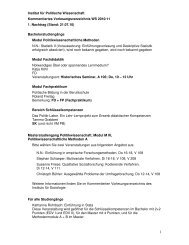Preventive Action for Refugee Producing Situations
Preventive Action for Refugee Producing Situations
Preventive Action for Refugee Producing Situations
Create successful ePaper yourself
Turn your PDF publications into a flip-book with our unique Google optimized e-Paper software.
204 Chapter 5<br />
the doctrine itself has survived and gained ground through such concrete measures<br />
as the establishment of ORCI.<br />
It is not only the U.N. that has expanded its preventive work into the sovereign<br />
territory of nations. The International Committee of the Red Cross (ICRC) <strong>for</strong><br />
example, has achieved an unparalleled acceptance of its ef<strong>for</strong>ts on behalf of<br />
civilians in internal armed conflicts. Those ef<strong>for</strong>ts have brought its workers even<br />
into places (such as Chile's prisons) where the government would not permit any<br />
outside access, even by the United Nations. 476 The actions of the ICRC, which have<br />
won widespread political acceptance, are rooted in four legal sources: the four 1949<br />
Geneva Conventions and their two 1977 Protocols Additional, the Statutes of the<br />
Red Cross, the Statutes of the International Committee, and the resolutions of the<br />
international conferences of the ICRC. 477 UNHCR is in a similar position. Despite<br />
its limitations of its original mandate, over the years its scope has extended its<br />
actions on behalf of nationals who are not necessarily refugees within a country.<br />
This has become possible partly because governments have come to appreciate the<br />
value of having UNHCR take over some of their burden of caring <strong>for</strong> their citizens,<br />
thus sparing themselves a great deal of financial and administrative strain. For<br />
example, UNHCR was called upon to assist nationals within Sudan in<br />
___________________________<br />
476 See Protocol II, relating to non-international armed conflicts, which was adopted by<br />
consensus at the end of the Diplomatic Conference. In accordance with Article 1,<br />
Protocol II is applicable in armed conflicts "which take place in the territory of a High<br />
Contracting party between its armed <strong>for</strong>ces and dissident armed <strong>for</strong>ces or other<br />
organized armed groups which, under responsible command, exercise such control over<br />
a part of its territory as to enable them to carry out sustained and conceited military<br />
operations and to implement this Protocol... An article of the Protocol prohibits t he<br />
<strong>for</strong>cible displacement of civilian populations, unless the security of the civilians<br />
concerned, or imperative military reasons, so demand. This provision is important and<br />
should in future prevent the tragic wandering of entire populations." [emphasis added]<br />
In: Francoise Bory, Origin and Development of International Humanitarian Law<br />
(Geneva, 1982), pp. 35-37.<br />
477 - Les Conventions humanitaires, c'est-a dire les quatre Conventions de Geneve du 12<br />
aoflt 1949 relatives ä la protection des victimes des conflits armds et leurs deux<br />
Protocoles additionnels du 8 juin 1977;<br />
- les Statuts de la Croix-Rouge Internationale;<br />
- les Statuts du CICR [Comite* International de la Croix-Rouge];<br />
- les resolutions des Conferences internationales de la Croix-Rouge. See Claude<br />
Wenger, "Lc Comit6 International de la Croix-Rouge et les re'fugie's," in The <strong>Refugee</strong><br />
Problem on a Universal, Regional and National Level, 10th session: September 1982<br />
of the Institute of Public International Law and International Relations of Thessaloniki<br />
1987, pp. 17,18.<br />
Legal Justification 205<br />
1971-72, without distinguishing between returning refugees and those who<br />
had been internally displaced without crossing a border and becoming<br />
"true" refugees. 478 Similarly, in Vietnam in 1974-75 the High<br />
Commissioner started on his own initiative a program of agricultural and<br />
small industrial projects <strong>for</strong> about 750,000 people displaced within the<br />
country. The program, begun on the High Commissioner's personal initiative,<br />
after only in<strong>for</strong>ming the Executive Committee obtaining its consent<br />
ex post facto of the General Assembly subsequently. 47 '<br />
We thus find that member states have ceased to see an irreconcilable<br />
dichotomy between their own national interests and international cooperation.<br />
They have also come to accept that international cooperation<br />
inevitably involves international organizations in their domestic development<br />
- an infringement on their national jurisdiction that they seem to<br />
tolerate, if not welcome. 480 The cooperative ef<strong>for</strong>ts of international and<br />
nongovernmental organizations, operating within or outside of an embattled<br />
nation's borders, with or without the consent of the govemment(s)<br />
concerned, helps both relieve the suffering of civilian bystanders and defuse<br />
tensions that could generate an even more serious conflict<br />
The current cross-border operation from Sudan to Eritrea (Ethiopia) may<br />
be mentioned as a successful example of the new cooperative measures.<br />
Here many nations, especially Western countries, have expanded their<br />
ef<strong>for</strong>ts so as to operate substantially through nongovernmental<br />
organizations, as well as through the traditional channels of national<br />
authorities in Addis Ababa. Through the "intervention" of these<br />
nongovernmental organizations, careful cross-border operations have been<br />
set up to bring food to famine-stricken Ethiopians in rebel-occupied areas<br />
without their having to cross into Sudan simply to obtain relief.<br />
As a result of the lessons learned from the 1984-85 famine in Ethiopia,<br />
during which, according to government estimates, one million persons<br />
died, the early signals of an impending new famine in 1987 initiated<br />
massive operations <strong>for</strong> bringing food to people instead of people to food.<br />
Despite numerous obstacles, including both governmental, and rebelcaused<br />
obstruction of ef<strong>for</strong>ts to bring food into droughtstricken areas of<br />
Eritrea and Tigray to needy people trapped in the rebel-occupied<br />
______________________<br />
478 UN GA res 2958 (XXVII), 12 December 1972: "Sudanese refugees coming<br />
from abroad and other displaced persons."<br />
479 UN GA res 31/35, 30 November 1975, in which the General Assembly<br />
unanimously endorsed the EXCOM's view of 24 July 1974, which recognized<br />
the need <strong>for</strong> humanitarian assistance to Vietnamese displaced within their<br />
country.<br />
480 Rajan.p. 206.



